All Stories
-
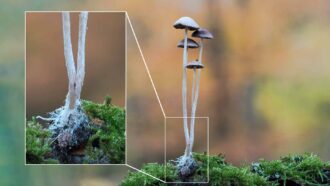 Life
LifeScientists Say: Mycelium
These fibrous networks are the reason plants think fungi are such "fun guys.”
-
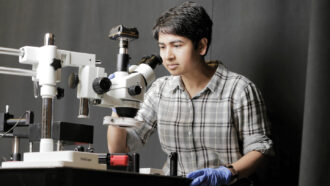 Tech
TechNanobots can now enter brain cells to spy on what they’re doing
Fleets of advanced versions may one day be able to detect disease and then go about surgically treating it — without ever opening the skull.
By Nikk Ogasa -
 Space
SpaceWeird black holes may reveal secrets of the early universe
Emerging evidence points to the existence of rogue black holes and other cosmic oddities — such as big black holes in tiny galaxies.
-
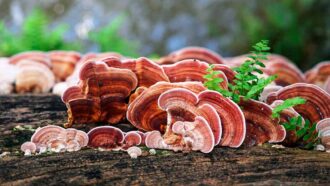 Materials Science
Materials ScienceMade from fungi, this vegan leather can self-heal holes or rips
If made under gentle conditions, leather formed from the “roots” of mushrooms can retain the ability to regrow and repair minor damage.
By Jude Coleman -
 Climate
ClimateLet’s learn about why summer 2023 was so hot
Human-caused climate change has played a big role in this summer’s historic heat.
By Nikk Ogasa and Maria Temming -
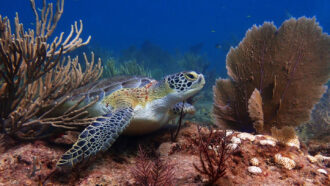 Oceans
OceansSummer 2023 is when the ocean first turned ‘hot tub’ hot
Unfortunately, scientists worry that this atypical sea warming may actually be the beginning of an unwelcome new ‘normal.’
-
 Tech
TechScientists Say: Fiber optic cable
Whether you’re reading these words on a phone, computer or other device, you may have fiber optic cables to thank.
-
 Tech
TechThis electronic bandage sterilizes wounds with flashes of light
Dentists have sterilized medical equipment with ultraviolet-C light for years. Applying this tech to bandages had proven a challenge — until now.
-
 Tech
TechGravity ‘batteries’ might help a weighty renewable-energy problem
To store the energy generated by wind and solar power, researchers are looking at mammoth systems that raise and lower weights.
-
 Health & Medicine
Health & MedicineHigh blood pressure can affect kids but often goes undiagnosed
Left untreated, it can lead to lasting problems, even in kids who appear otherwise healthy. Learn the signs and what to do.
By Erin Ross -
 Health & Medicine
Health & MedicineExplainer: High blood pressure stresses the heart and blood vessels
Because it can be dangerous, doctors should regularly screen for it even in young kids and teens — but often don’t.
By Erin Ross -
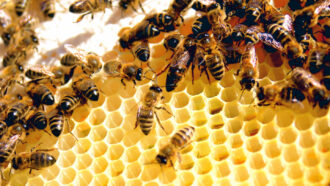 Math
MathBees and wasps devised the same clever math trick to build nests
During nest building, these insects add five- and seven-sided cells in pairs. This helps their colony fit together hexagonal cells of different sizes.